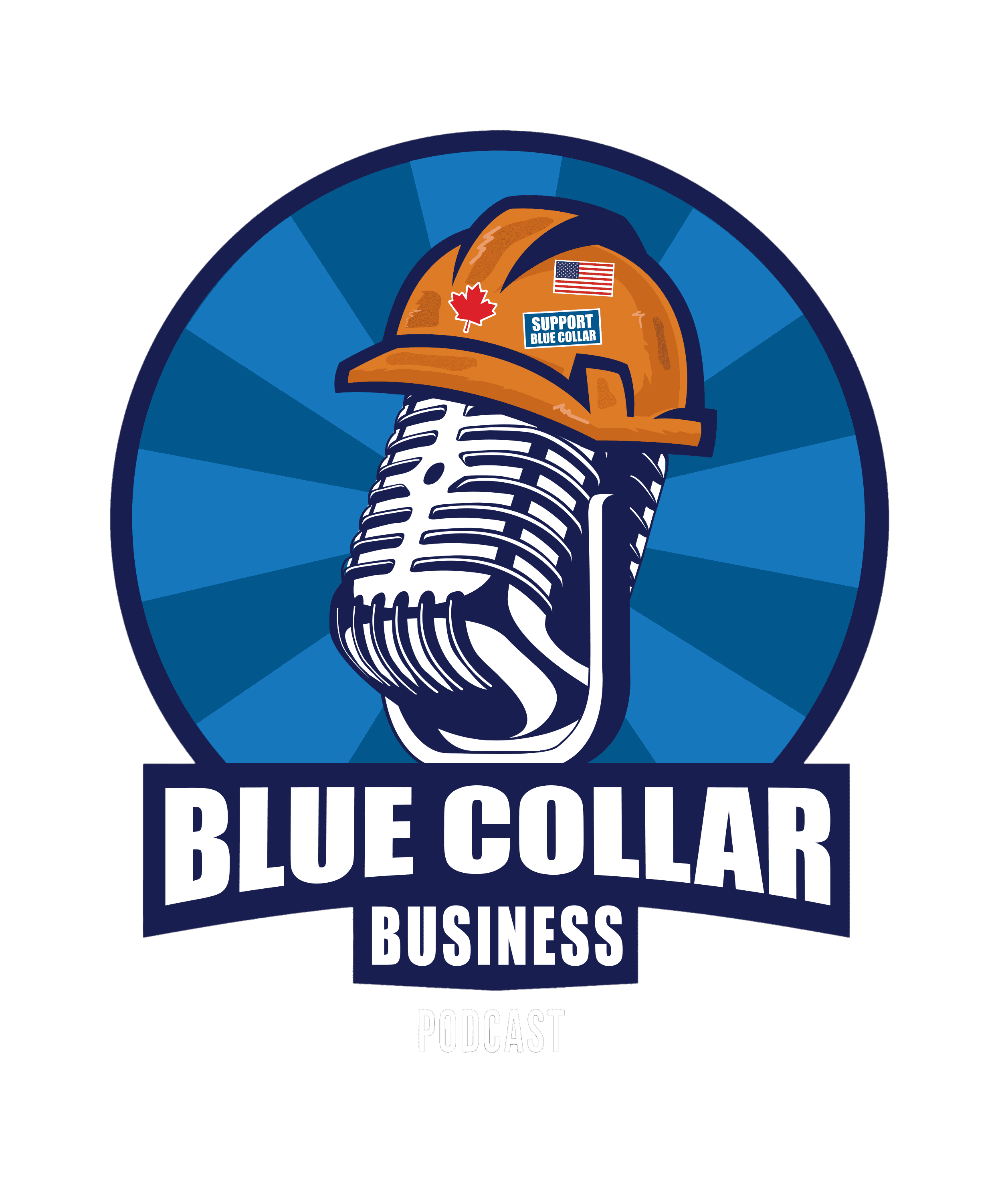Have you ever wondered if there's a more stable revenue stream waiting for your blue collar business? In this eye-opening episode, Eric Knellinger, president of US Federal Contractor Registration, reveals the largely untapped world of federal government contracts and how they can transform small businesses in the trades.
Did you know that 23% of all federal contracts MUST be awarded to small businesses? That's billions of dollars in potential work for companies just like yours. Eric shares the inspiring story of how personal tragedy led him to create USFCR, and how his company has since helped countless contractors navigate the complex world of government procurement.
The conversation dives deep into practical strategies for blue collar businesses to access this market. Eric explains the registration process, how to market effectively to procurement officers, and the game-changing concept of "teaming" with other small businesses to bid on larger contracts. He addresses the common barriers holding contractors back, from lack of capital to fear of complex paperwork, and outlines clear solutions for each.
What sets this episode apart is the actionable advice for businesses at every stage. Whether you're a "Chuck in a truck" just starting out or an established contractor looking to diversify revenue streams, you'll gain insights into how federal contracts can provide stability and growth opportunities. Eric's passion for helping small businesses succeed shines through as he challenges listeners to ask themselves, "What's next?" and consider federal contracting as their answer.
For Blue Collar Business Podcast listeners, Eric offers an exclusive opportunity: mention this episode when contacting USFCR to receive a free market analysis and coaching session, a $1,200 value that could map out your path to federal contracts. Visit USFCR.com today to learn how your business can tap into the world of government contracting and take your operation to the next level.
Blue Collar Performance Marketing
Click the link above for a free marketing audit with insights to boost your blue collar business!
PodcastVideos.com
Put your show in front of audiences that care with PodcastVideos.com's wide range of podcasts!
Disclaimer: This post contains affiliate links. If you make a purchase, I may receive a commission at no extra cost to you.
Follow and stay connected:
Never miss an update—follow, subscribe, and join the conversation!
More About this Episode
How Small Businesses Can Win Big with Federal Contracts
Most small business owners assume federal contracts are reserved for massive corporations with entire legal departments. The truth? The U.S. government must allocate 23% of its contract spending to small businesses every single year. Whether you run a landscaping crew, a concrete outfit, an excavation team, or a specialized trade, there’s a government project somewhere that needs exactly what you offer.
In a recent conversation with Eric Knellinger, president of U.S. Federal Contractor Registration (USFCR), we dug into how federal contracting works, why most small businesses never pursue it, and how to bridge that gap. His message was simple: The government buys everything from staples to spaceships, and small businesses have a legal foothold in that market.
The Birth of USFCR: A Personal Mission
Fifteen years ago, Eric’s career took a sharp turn after his wife was diagnosed with glioblastoma. Encouraged by a friend in government procurement and by his wife herself, he launched USFCR to guide small businesses through the complex process of becoming eligible for federal work.
In the early days, the company focused solely on getting businesses registered. Over time, Eric realized registration was only the “driver’s license”; what actually wins contracts is marketing to the right people inside the system.
Why Federal Contracting is a Goldmine for Small Businesses
Here’s the key: 23% of all federal contracts must go to small businesses. Beyond that, there are set-aside categories for veterans, women-owned businesses, minority-owned businesses, and companies in historically underutilized business zones (HUBZones).
Large “prime” contractors often need vetted small subcontractors to meet those quotas. If your business is registered and qualified, primes will gladly bring you in because you’re solving one of their compliance problems.
The Registration Reality Check
Most small business owners think being in the government’s SAM.gov database is enough. According to Eric, that’s like having a driver’s license without a car you’re allowed to drive, but you’re not going anywhere.
USFCR ensures:
- All relevant NAICS codes (industry classifications) are included to expand eligibility.
- You’re registered for every applicable set-aside program.
- Compliance is maintained year-round because if your registration is within 90 days of expiring, you’re effectively ineligible for new contracts.
Marketing to the Right People
Winning federal work is less about paperwork and more about relationships. USFCR actively markets their clients to:
- Federal procurement officers
- Large prime contractors
- Industry-specific government trade shows (e.g., events connecting small businesses with the U.S. Navy)
Showing up matters face-to-face introductions at these events often lead to direct invitations to bid.
The Power of Teaming
Even if you can’t fulfill an entire contract yourself, you can team with other small businesses to form a complete solution.
Example: An excavation contractor teams with a landscaper, a paving company, and a materials supplier. Together, they can bid on a project that none of them could handle alone.
USFCR also maintains the largest database of vetted small businesses, making it easy to connect clients with the partners they need to fill gaps in capability.
Real-World Example: The Paint Company
Eric shared a story about a small paint manufacturer that couldn’t package its product the way the government required. USFCR connected them with a labeling company. Together, they landed a $300,000–$400,000 federal contract neither had previously sold to the government.
Once you win that first job, you build past performance, which becomes one of the most powerful trust factors in landing future work.
Overcoming the Capital Barrier
Capital is often the biggest hurdle for small businesses looking to pursue federal contracts. USFCR helps solve this by:
- Offering financing for registration, compliance, and marketing setup
- Reporting to Dun & Bradstreet to build business credit
- Using awarded contracts as collateral to secure equipment financing
This means even a “Chuck in a truck” operation can step into the federal space without having to drain their savings.
The Three Phases of Business Growth
Eric explains that companies typically move through three motivators:
- Profit – Survival stage; you just need to make money.
- Prestige – Growth stage; you want to expand your reputation and market reach.
- Protection – Maturity stage; you’re safeguarding what you’ve built.
Federal contracting can help in all three phases, whether you need steady revenue, a stronger market position, or a competitive advantage in local bidding.
Why This Matters for Blue Collar Businesses
Federal contracting isn’t just for tech firms or defense contractors. The government needs:
- Site prep and excavation
- Electrical work
- Plumbing
- Steel fabrication
- Roofing
- Landscaping
- Waste management …and thousands of other trade services.
For many, landing a single $300,000 contract can transform their business trajectory, providing the stability to invest in better equipment, hire more help, or weather slow local seasons.
How to Get Started
Eric’s advice:
- Get properly registered – Make sure all codes, set-asides, and compliance items are in order.
- Market yourself – Don’t just exist in the system, get in front of procurement officers and prime contractors.
- Be ready to team – Fill in capability gaps with other vetted contractors.
- Stay compliant year-round – Avoid getting sidelined by an expired or incomplete registration.
If you’re sick and tired of being stuck in the same seasonal grind, ask yourself “What’s next?” Federal contracting could be the revenue stream that changes your business and your life. The opportunities are there. The government is legally required to award them. The only question is whether you’ll position yourself to win them.



Member discussion: